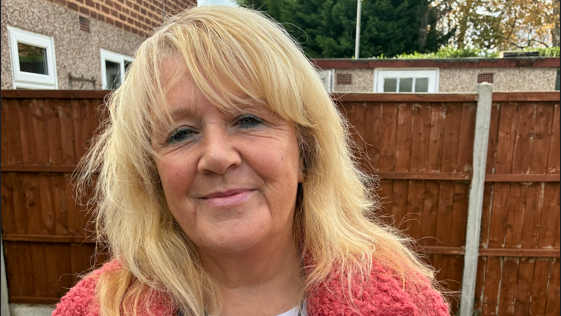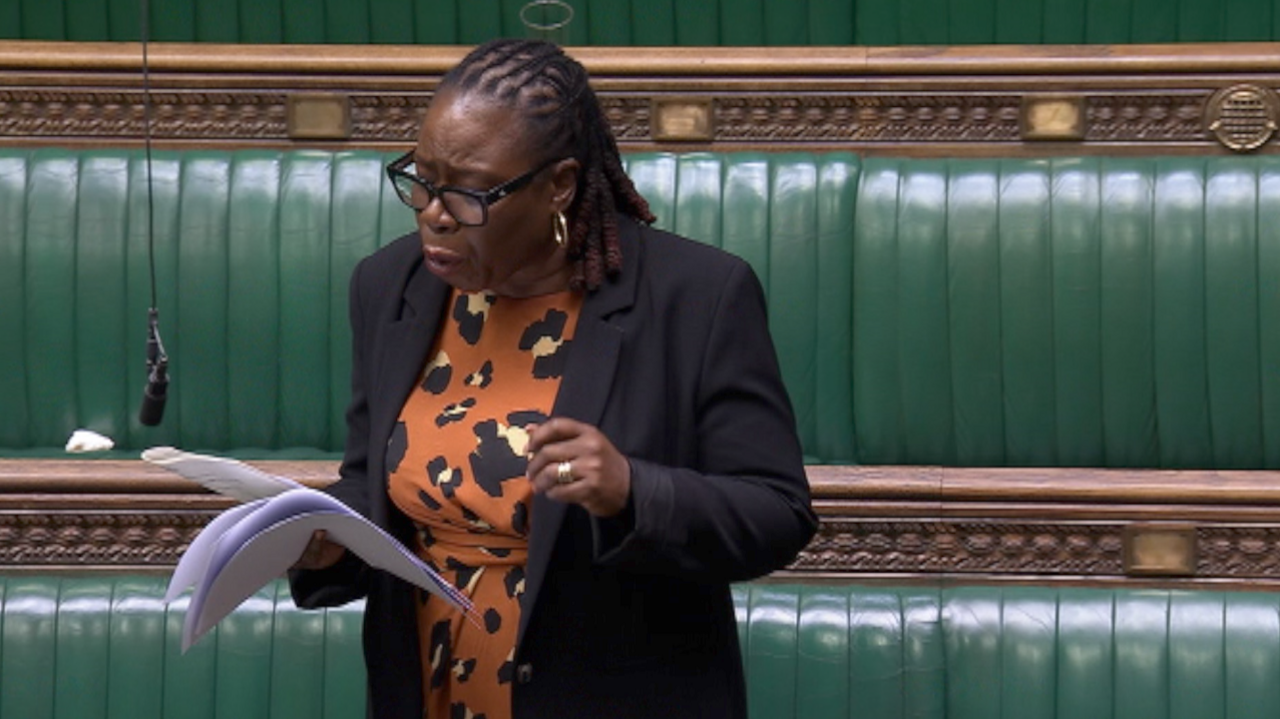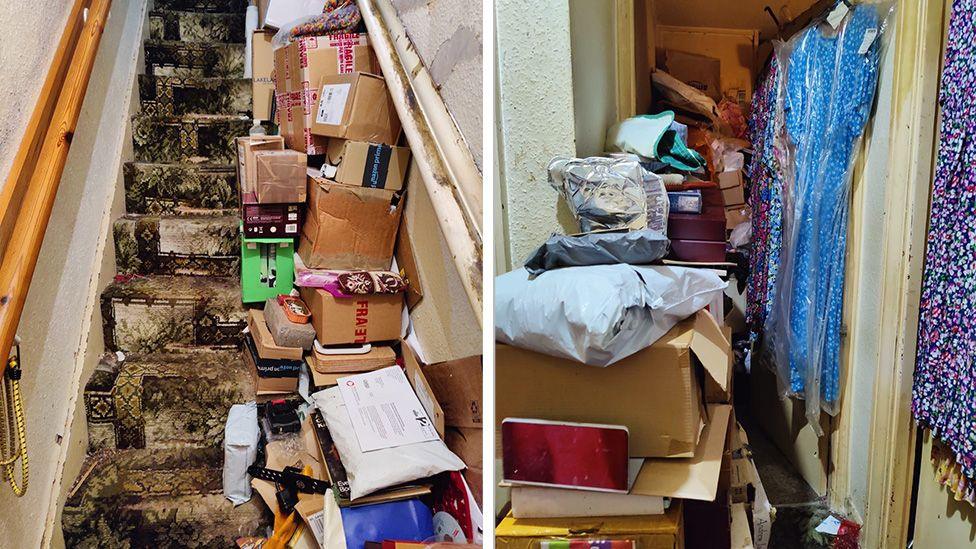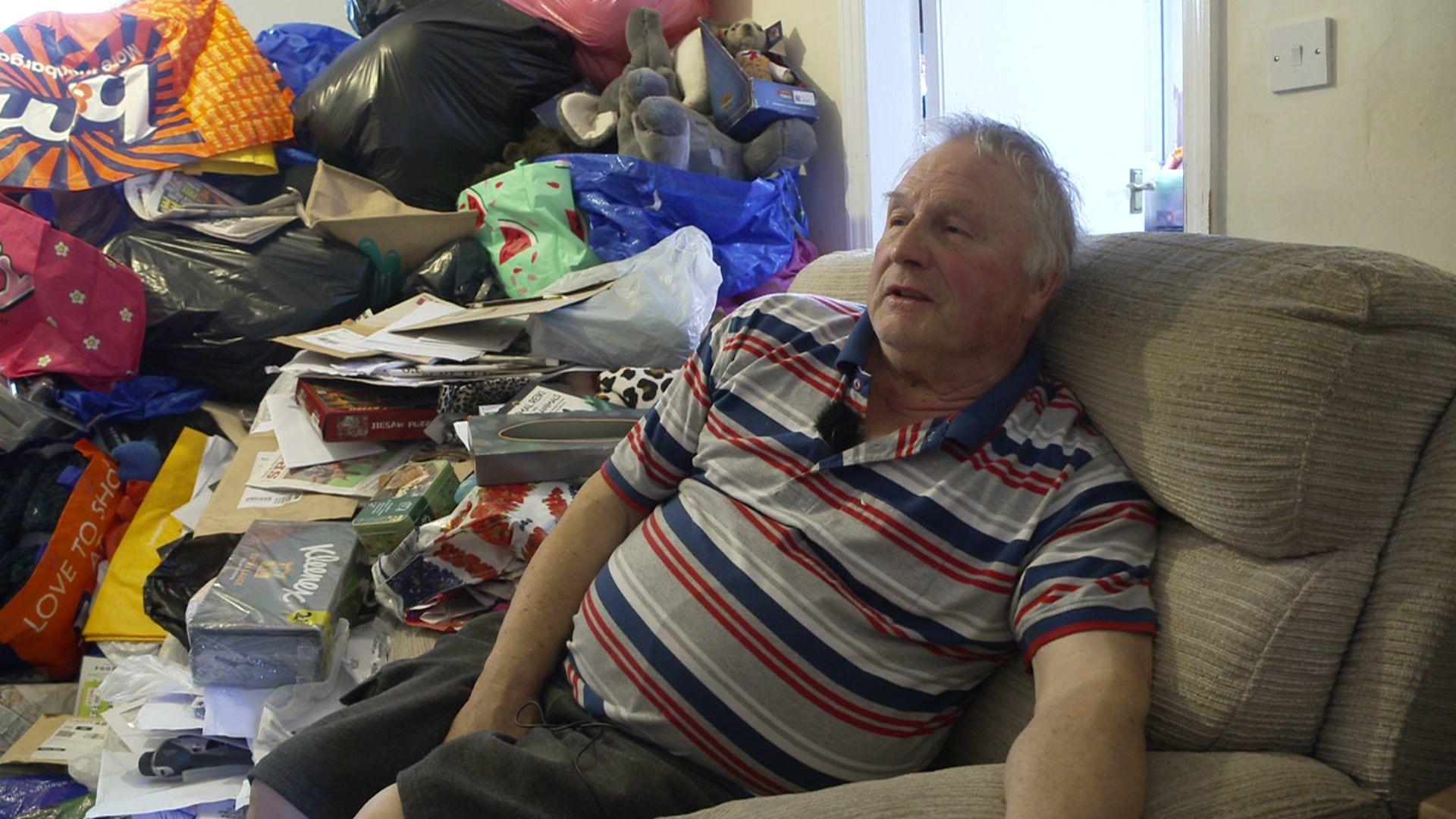Commons debate offers hope for hoarders

David from Shard End began hoarding more than a decade ago
- Published
A social enterprise says it believes the UK could finally open the doors to better care for people living with a hoarding disorder, following a landmark debate in Parliament.
MPs gathered in the House of Commons on 22 October to discuss for the first time the mental health condition, which affects an estimated 2.5% to 6% of the UK population - potentially up to four million people.
The adjournment debate was put forward by Paulette Hamilton, MP for Birmingham Erdington and acting chair of the health and social care committee.
She urged the government to develop new national guidelines as a matter of urgency.
Among those watching closely was Heather Matuozzo, founder of Clouds End, a Birmingham-based social enterprise that has supported hundreds of individuals struggling with hoarding.
"The doors are open now, and we have put a brick behind it," she said, expressing optimism about the future of care and funding.
'I'm keeping the Barbies'
David, 75, from Shard End, began hoarding more than a decade ago. After the loss of his parents, he found comfort in collecting Barbie dolls, soap, toothpaste and stacks of newspapers.
"It's helped me," he said. "I've been able to throw out some things - we filled four or five skips - but I'm keeping the Barbies."
David is one of many who have received support from Clouds End, which works under contract with Birmingham City Council to provide social interventions via mental health referrals.

Heather Matuozzo has supported hundreds of individuals struggling with hoarding
Following a series of BBC Midlands Today reports earlier this year, concerns grew that hoarding disorder cases had surged since the Covid pandemic, yet specific funding was in short supply.
Psychologists said isolation, grief, and economic uncertainty have all intensified hoarding behaviours, especially among older adults.
The Centre for Mental Health estimates that the overall cost of mental ill health in England is now £300bn annually.
Yet hoarding disorder remains largely under-recognised and underfunded, with most support falling to grassroots organisations and overstretched local authorities.
Ms Matuozzo said demand in Birmingham is high, but limited resources mean some referrals must be turned away until new funding becomes available.

Paulette Hamilton MP has called on the government to develop new national guidelines as a matter of urgency
In the Commons debate, Ms Hamilton, herself a former district nurse, called for a "multi-agency approach" that includes mental health services, housing, social care, and emergency responders.
She urged investment in research and data collection to better understand the scale and impact of hoarding.
Health minister Dr Zubir Ahmed MP responded by highlighting government efforts to expand mental health care, including 8,500 new workers and six pilot neighbourhood centres offering 24/7 support.
But he said there were no specific plans for a national hoarding strategy.
"With love from families, patience from friends and the ongoing support of charities and third-sector organisations, countless people with hoarding disorder have managed to live safe, healthy and fulfilling lives," he said.
As the conversation around hoarding disorder moves from the shadows into the spotlight, campaigners hope this marks the beginning of a more compassionate and coordinated response.
Ms Matuozzo said the momentum felt real, and she would not be surprised if a national strategy was developed over time.
"I think we've got the guidelines now, once Paulette referred to in the chamber, and we – as social enterprises and charities - need to keep them as our mantra," she said. "We'll get there."
Get in touch
Tell us which stories we should cover in Birmingham and the Black Country
Follow BBC Birmingham on BBC Sounds, Facebook, external, X, external and Instagram, external.
Related topics
- Published1 May

- Published2 August 2024
